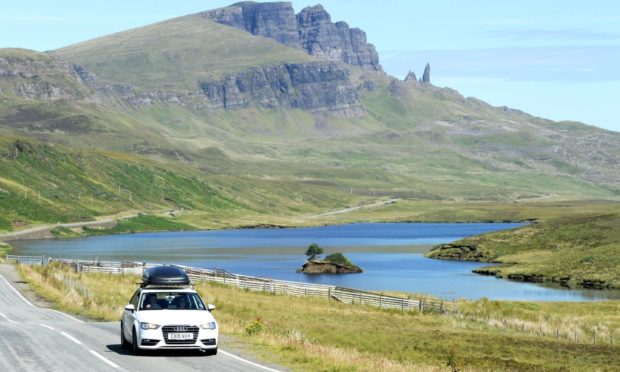For much of the spring and early summer Scotland, for the first time since the Second World War, has been a country without visitors. For the more tourism-dependent localities their absence has had many adverse economic consequences that threaten calamity once coronavirus-related and government-backed furlough schemes end.
Responses have so far focused on how – subject to virus-control measures – tourism-related businesses can get back on their feet. That’s understandable and right.
But might it also be appropriate for government, its agencies and the rest of us to think about what needs to be done in the long run to ensure that, while maximising tourism’s contribution to local economies, we also minimise and curtail its downsides?
That there are such downsides is clear. One, highlighted by the impact of the lockdown, is the extent to which many places are overly-committed to this single activity.
For any community to have its fortunes inextricably bound up with the performance of one industry is to court disaster. That’s evident from the still-lingering consequences of the mining, steelmaking and other closures that devastated parts of central Scotland and the north of England in the 1980s and 1990s.
Barring future lockdowns, tourism’s unlikely to vanish in the way so much of mining and manufacturing did. But it might still make sense to give a higher priority to diversifying the economies of our many tourism-reliant areas; from Deeside to Skye and from Orkney to Oban.
It might make equal sense to formulate policies that encourage some kinds of tourism at the expense of others.
What, from the perspective of a local economy, makes one kind of tourist preferable to another? Key factors are a tourist’s length of stay and the nature of their spend.
At the least helpful end of this spectrum are those who are disgorged for a few hours from a passing cruise ship. Their purchases might be limited to coffees, snacks and, perhaps, one or two inexpensive souvenirs.
If, as is quite possible, coffees and snacks are bought from some multinational chain while the souvenirs were manufactured overseas, a tourist of this type – from a purely local standpoint – is of next to no financial benefit.
Suppose, however, that a tourist stays for several days in a locally-owned and locally-staffed guesthouse or hotel. Suppose also that this tourist uses services of the sort provided by locally-based tour-boat or day-trip operators; buys locally-created goods of high quality; eats in locally-owned and locally-staffed restaurants that serve meals made from locally-sourced fish, shellfish and farm produce.
Such a tourist’s contribution to the area in which they are holidaying is hugely more valuable than that of the cruise ship passenger.
And it’s not just the local economy that gains greatly from this second tourist. The nation too is a beneficiary.
The cruise ship may be registered somewhere like the Bahamas and owned by a company headquartered in a tax haven. The ownership structure of the cafe chain patronised by its passengers may have been designed with a view to avoiding as much tax as possible. If so, the cruise ship that arrives in the morning and sails in the evening is of no more help to the national exchequer than to the local economy.
In a wholly different category are hoteliers, bed-and-breakfast proprietors, tour-boat operators and restaurateurs who live locally.
Particularly if their staff also stay in that area, they’re doing more than their bit – by way of income tax, corporation tax, business rates and council tax – to boost the public purse.
Might it not be a good idea then, to skew policy in ways that favour them and the types of tourism on which they depend?
Also, ensuring that planning policy helps smooth the way for the expansion of locally-controlled tourism accommodation while being less amenable to the proliferation of externally-owned enterprises whose profits go overseas? And ensuring that everything from grant aid to business rates is organised with the same objective in view?
Alongside differential policies of that type, steps might be taken to limit the out-of-hand tendency for more and more badly-needed houses to be turned into second homes and holiday lets. This, of late, has impacted negatively on the prospects of far too many places. How can any community have a good future when an ever-growing proportion of its homes are taken out of local use?
What’s needed, surely, is an insistence – already becoming evident in some other parts of Europe – that the undoubted demand for self-catering accommodation is met by purpose-built provision and not by depriving a locality’s permanent residents of a chance to have somewhere to stay.
So, yes, let’s welcome tourism’s return. But let’s also put a bit of effort into developing a more constructive relationship with it.
Jim Hunter is a historian, award-winning author and Emeritus Professor of History at the University of the Highlands and Islands

